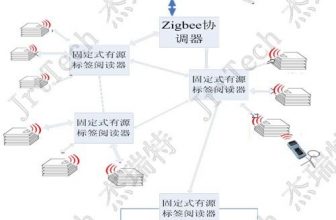
IBM provides radio frequency identification solutions
[ad_1]
In the current challenging business environment, manufacturers and retailers need to build fast, responsive and flexible supply chains—and focus on providing value to end users.
More and more well-known companies (including Wal*Mart, Target, Albertsons, Tesco, METRO Group, and the U.S. Department of Defense) are turning to radio frequency identification (RFID) technology to help conduct business. RFID is a powerful implementation technology designed to straighten out the supply chain and ultimately realize the transformation of the retail and manufacturing industries-and improve business processes to give full play to its true value.
Based on parts, finished products, or “smart tags” applied to goods, boxes, or pallet-level packaging, RFID provides a self-identification mechanism for a comprehensive understanding of the status of the supply chain. By integrating with business processes and applications, RFID can change the way suppliers and retailers make demand planning, manage inventory, distribution and supply chain partners, and sell to consumers through stores.
The practical application of RFID
Consumer goods manufacturers will use RFID solutions to achieve excellent inventory management and maintain appropriate inventory levels, while reducing labor costs by eliminating physical scanning and inventory statistics, reducing picking errors, and improving return management. Manufacturers can improve production plans, increase responsiveness to retailer and consumer demand, and reduce excess inventory and theft.
By improving insight, retailers will help them respond to market demands more quickly and reduce out-of-stocks, thereby increasing sales and customer satisfaction. In addition, RFID will help retailers reduce storage costs, product theft losses and labor costs. In the future, retailers can use commodity-level labels to formulate future in-store sales, marketing, promotion, and service strategies.
Similarly, by using RFID technology to improve the supply chain, pharmaceutical companies can also use RFID tags to monitor whether production processes meet regulatory requirements and verify the authenticity of products to help prevent counterfeiting.
Industrial manufacturers can use RFID technology to automatically predict inventory deviations, significantly save labor costs, and more strictly control the production and distribution supply chain-including quality control and theft issues.
For public and private companies that want to know the supply chain operation status, supply partner network, and production assets used in real time, RFID provides self-identification capabilities for parts, finished products, shipping containers, and fleets. Through the tracking and optimization of assets and inventory, new and profitable business models can be provided.
IBM adopts an end-to-end RFID solution strategy throughout the entire process from business case to trial run, implementation and full deployment. At the core of this strategy is a comprehensive and flexible solution framework that aims to achieve rapid return on investment while providing a roadmap for the future. IBM has launched strong initiatives to support the industry through early research, participation in standards development organizations, and implementation of customer pilot projects. With these early experiences and the breadth and depth of the solution components provided, IBM has a unique advantage in supporting customers to use RFID technology to achieve business transformation.
If you want to know more information, please call:
8008101818-5258
(010)84981188-5258
[ad_2]




